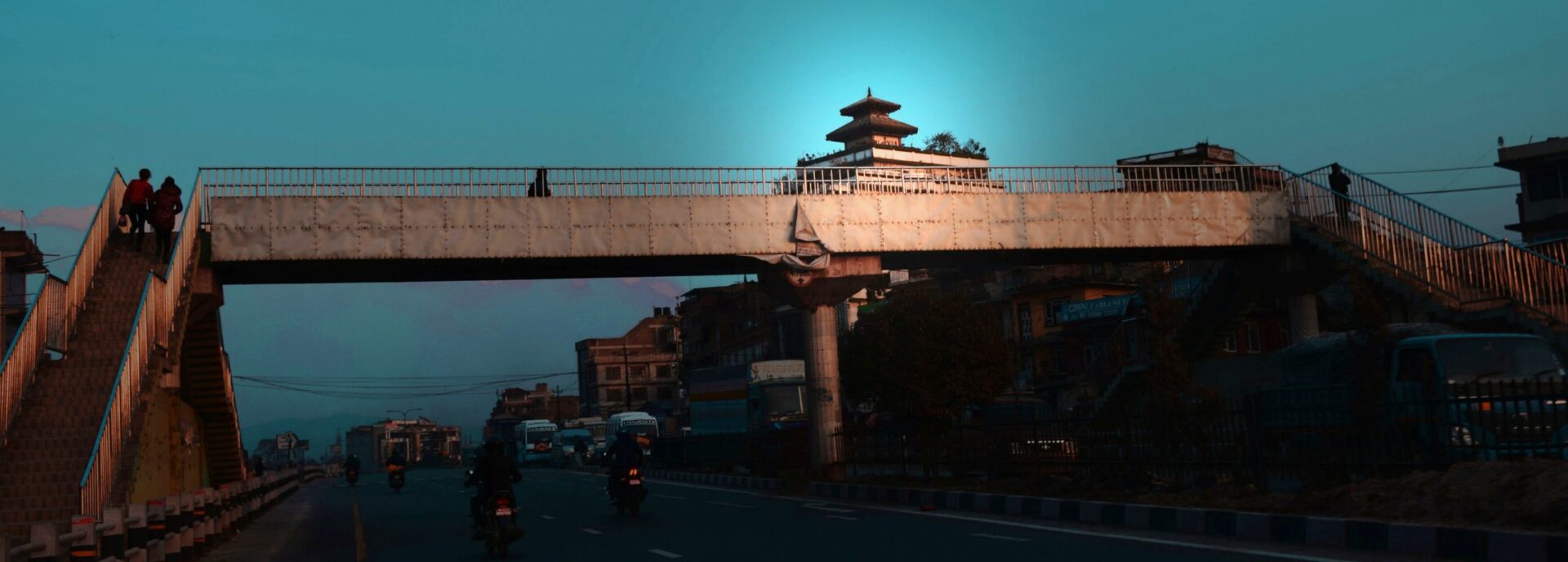I am an Assistant Professor at Washington State University (WSU). I completed my PhD in the Rhetoric and Composition from The University of Texas, El Paso (UTEP). I serve on an editorial board of a Nepali grassroots feminist magazine, Aparaajitaa Paarijaat. Communities are at the heart of everything I do, and academia is where I choose to do those works from.
#GlobalSouthSolidarities #TransnationalFeminisms #FeministDesignJustice
A very brief intro to my major research/writing projects:
I. Re-rhetoricizing Global Souths Contrapuntally: Borderless Transnational Feminist Design Justice (Dissertation-Completed)
My hybrid (traditional and multimodal) dissertation, Re-rhetoricizing Global Souths Contrapuntally: Borderless Transnational Feminist Design Justice, functions as hypertextual and intertextual documentation of theories, practices, examples, methods, and digital and multimodal techniques of re-writing and re-rhetoricizing the differently situated Global Souths from a ground-up approach. I acknowledge the Global South as not only those geographies previously known as the Third World but also those spaces and communities within the Global North undergoing various forms of colonial, racist, neoliberal, and heteropatriarchal exploitations. Transnational feminist solidarities put the intersectional analysis of gender construction at the heart of its bottom-up resistance against global capitalism, environmental injustice, corporate violence, and imperialism. My dissertation brings several examples from South Asia, the Middle East, the Americas, and Turtle Island to demonstrate the vicious continuum between rhetorical violence and material violence and what the field and subfields of rhetoric and writing studies can do to turn the tables and build communities based on love, care, kindness, relationality, reciprocity, and dignity. While documenting the journey and effects of the digital archive of my street photography and multimodal documentation system I am building through feminist design justice frameworks, I bring examples of community-led multimodal storytelling and archiving practices from the Global South. The idea is to demonstrate that communities have always been practicing resistance writing in the most creative and radical ways with the available resources and all we need to do is humbly listen and learn. Furthermore, I list a vast range of open-access digital, multimodal, and computational tools and techniques employed by universities, institutions, and UX and digital humanities projects while building a repository to make these resources accessible to the communities, community members, researchers, students, and teachers with no to little institutional-infrastructural support for digital projects. In short, my dissertation calls for feminist solidarities with and among communities from differently situated Global Souths using digital and multimodal tools and design justice practices. I profoundly owe my work to the Global South communities as they are experts and teachers on what I am exploring. The methodology I am working with is Critical Digital Archival Studies. The four paradigms, strategies, and frameworks I largely rely on are:
• Transnational Feminism and Comparative Global Rhetoric
• Decolonial Border Rhetoric
• Design Justice and Data Feminism
• Contrapuntal Reading, Writing, and Narrativizing
II. Gendering South Asia in Global Capital: Non-Phallic Bodies in Invisible and Visible Spaces (Monograph-in-progress)
Before beginning my doctoral work at UTEP, I was a lecturer at the Institute for Advanced Communication, Education, and Research (IACER) in Kathmandu from 2012-2017, where I taught courses in the areas of cultural criticism, literary theory, and philosophy. During this time, I participated in a series of Rethinking/Comparative South Asian Studies workshops in Nepal, which was supervised by Prof. Ashis Nandy, Prof. Gayatri Chakravorty Spivak, Prof. Arun Gupto, Prof. Robert Barnett, and other frontline scholars from Nepali, South Asian, and North American Universities. Alongside a rigorous practice of deconstructionist self-reflection, the study is a cutting-edge critique of regionalism, area studies, and disciplinary essentialism by taking issues of contemporary significance. My book, Gendering South Asia in Global Capital: Non-Phallic Bodies in Invisible and Visible Spaces, which has been accepted for publication by Routledge, derives from my research during and after these workshops. Gendering South Asia is about how in South Asian societies female bodies and/or non-phallic bodies are made to function or are functioned upon in three proposed markers of global capitals: media, masculinity, and ideological fundamentalism. It studies the heteronormative rhetorics built around cis women, trans women, trans men, and queer bodies through policies, jurisdictions, media, international and regional laws, religious laws and prescriptions. While doing that, my book also studies how the feminist and queer activisms and activists are rewriting and re-rhetoricizing their bodies and threatening those heteronormative rhetorics.
Whether through my research or teaching, I am exploring the ways to put intellectual labor, academia, methods, resources, technology, and digital and multimodal tools into the service of underrepresented communities, intersectionally disadvantaged groups of people and build healing spaces in academia and through academia.
For more information, please contact me at bibhushana.poudyal@wsu.edu
Instagram: @bibhushanaa (As my Re-rhetoricizing Global Souths digital archival project is closely connected to my instagramming, you can also find me here too.)
The WSU Indigenous Land Acknowledgement Statement
Washington State University acknowledges that its locations statewide are on the homelands of Native peoples, who have lived in this region from time immemorial. Currently, there are 42 tribes, 35 of which are federally recognized that share traditional homelands and waterways in what is now Washington State. Some of these are nations and confederacies that represents multiple tribes and bands. The University expresses its deepest respect for and gratitude towards these original and current caretakers of the region. As an academic community, we acknowledge our responsibility to establish and maintain relationships with these tribes and Native peoples, in support of tribal sovereignty and the inclusion of their voices in teaching, research and programming. Washington State University established the Office of Tribal Relations and Native American Programs to guide us in our relationship with tribes and service to Native American students and communities. We also pledge that these relationships will consist of mutual trust, respect, and reciprocity.
As a land grant institution, we also recognize that the Morrill Act of 1862 established land-grant institutions by providing each state with “public” and federal lands, which are traced back to the disposition of Indigenous lands. In 1890, Washington State received 90,081 acres of Indigenous Lands designated to establish Washington State University (see data). Washington State University retains the majority of these lands to this day. We acknowledge that the disposition of Indigenous lands was often taken by coercive and violent acts, and the disregard of treaties. For that, we extend our deepest apologies. We owe our deepest gratitude to the Native peoples of this region and maintain our commitment towards reconciliation.


